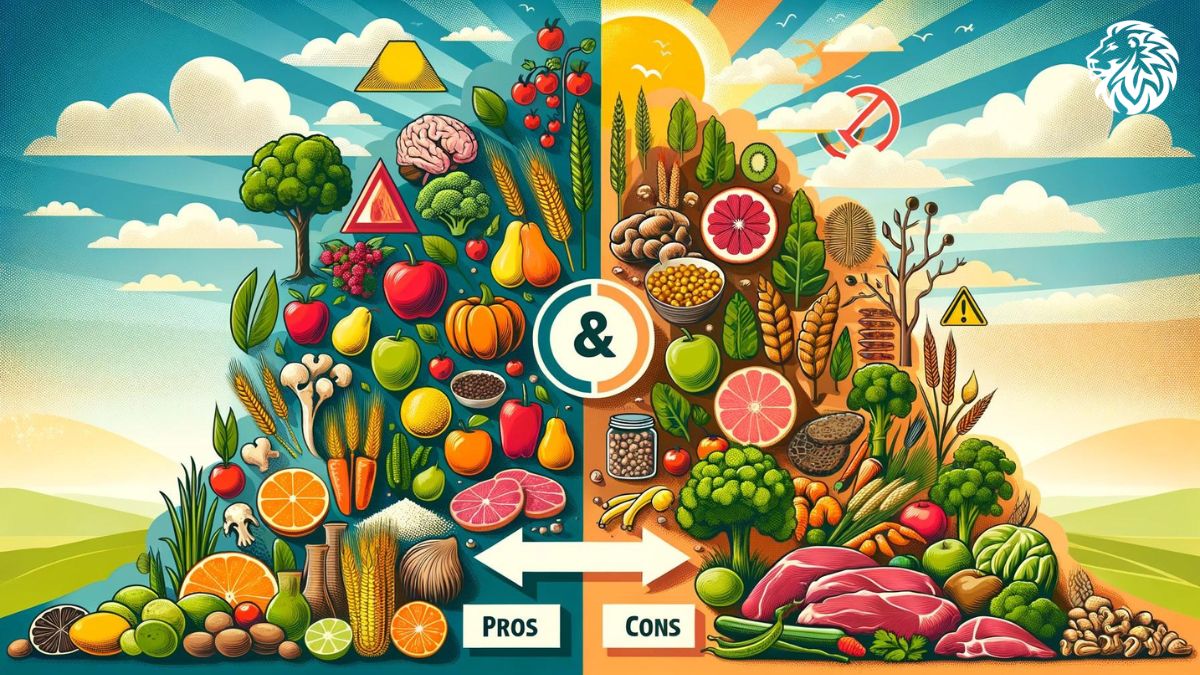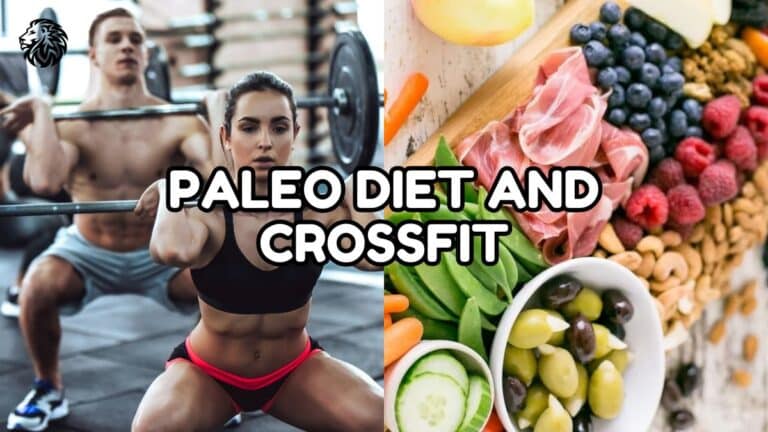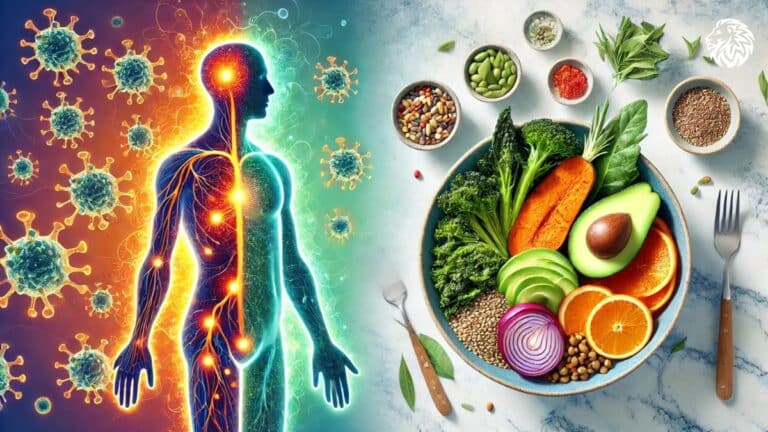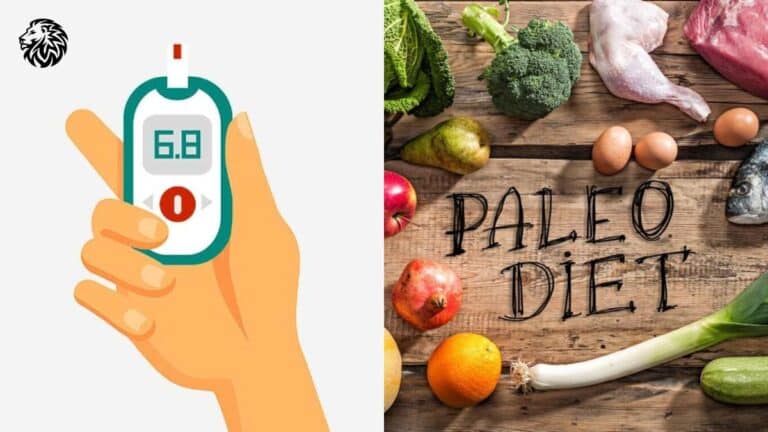The Paleo Diet, often referred to as the ‘Caveman Diet’, is a modern nutritional plan based on the presumed diet of Paleolithic humans. This diet primarily includes foods that could be obtained through hunting and gathering, such as lean meats, fish, fruits, vegetables, nuts, and seeds, and excludes foods like dairy products, grains, and processed foods, which are believed to have emerged with the advent of farming and animal husbandry around 10,000 years ago.
The diet’s historical context stems from the Paleolithic era, a period lasting approximately 2.5 million years that ended with the development of agriculture. Proponents of the Paleo Diet argue that the human body is genetically mismatched to the modern diet that emerged with farming practices, an idea known as the “discordance hypothesis.” They claim that the rapid shift in diet outpaces the body’s ability to adapt, leading to modern health issues like obesity, heart disease, and diabetes.
The purpose of this article is to delve into the Paleo Diet, exploring its potential benefits and drawbacks. We aim to provide a balanced perspective, drawing on scientific research, expert opinions, and anecdotal evidence, to help readers make informed decisions about whether this diet might be suitable for their lifestyle and health goals.
Understanding the Paleo Diet

Definition and Main Principles
The Paleo Diet is founded on the principle of eating foods that are presumed to have been available to humans during the Paleolithic era. The core idea is to mimic the dietary patterns of our hunter-gatherer ancestors. The main principles of the Paleo Diet include:
- Natural and Unprocessed: Focusing on whole, unprocessed foods.
- High Protein Intake: Emphasizing lean meats and fish as primary protein sources.
- Low Carb and Low Glycemic Index: Reducing intake of carbohydrates, especially refined carbs, and focusing on those with a low glycemic index.
- Healthy Fats: Encouraging the consumption of healthy fats from sources like nuts, seeds, and certain oils.
- Fiber-Rich Foods: Prioritizing fruits and vegetables for their high fiber content.
Typical Foods Included and Excluded
Included:
- Meats: Preferably grass-fed or free-range beef, pork, lamb, poultry, and game meats.
- Fish and Seafood: Especially those rich in omega-3 fatty acids.
- Fruits and Vegetables: A wide variety, focusing on those with lower sugar content.
- Nuts and Seeds: Except peanuts, which are legumes.
- Healthy Fats: Such as avocado, olive oil, and coconut oil.
Excluded:
- Dairy Products: All forms of dairy are generally excluded.
- Grains and Legumes: Including wheat, rice, barley, beans, and lentils.
- Processed Foods and Sugars: Anything processed or with added sugars.
- Certain Vegetable Oils: Like soybean, corn, and sunflower oil.
- Artificial Sweeteners: All forms of artificial additives and sweeteners.
Comparison with Other Popular Diets
- Mediterranean Diet: While both emphasize whole foods and healthy fats, the Mediterranean diet includes grains and dairy, which are excluded in the Paleo Diet.
- Keto Diet: Keto focuses on high-fat, extremely low-carb intake to induce ketosis, which is not a specific goal of the Paleo Diet. Paleo allows more carbohydrates, primarily from fruits and vegetables.
- Vegan Diet: While both diets emphasize plant-based foods, the Paleo Diet includes meat and fish, which are not part of a vegan diet.
- Atkins Diet: Similar to Paleo in its low-carb approach, but Atkins includes processed foods and dairy, which Paleo does not.
This section of the article aims to provide a clear understanding of what the Paleo Diet entails, its fundamental principles, and how it differs from other popular dietary approaches.
Pros of the Paleo Diet

Improved Weight Loss
- Evidence and Success Stories: Numerous individuals have reported significant weight loss success on the Paleo Diet. Studies have shown that the diet can lead to weight loss, even without intentional calorie restriction, likely due to its emphasis on lean proteins and low-carb foods.
- Mechanism Behind Weight Loss: The diet’s effectiveness in weight loss can be attributed to several factors. High protein intake increases satiety and reduces appetite, leading to lower calorie intake. The elimination of processed foods and refined sugars also contributes to a calorie deficit conducive to weight loss.
Enhanced Overall Health
- Improvements in Cardiovascular Health: The Paleo Diet may improve blood pressure and cholesterol levels, key factors in cardiovascular health. Some studies suggest that the diet can lead to a significant reduction in LDL (bad) cholesterol and triglycerides.
- Blood Sugar Control and Diabetes Management: By eliminating refined sugars and grains, the Paleo Diet can help stabilize blood sugar levels, which is beneficial for individuals with diabetes or at risk of the condition. The diet’s low glycemic load is conducive to better glycemic control.
Focus on Whole Foods
- Reduction in Processed Food Consumption: One of the major benefits of the Paleo Diet is the drastic reduction in processed and refined foods, which are linked to various health issues, including obesity and heart disease.
- Increased Nutrient Intake: The diet’s emphasis on fruits, vegetables, nuts, and seeds means a higher intake of essential vitamins, minerals, and antioxidants, which are crucial for overall health and wellbeing.
Digestive Health Benefits
- Impact on Gut Health and Digestion: The Paleo Diet’s focus on fiber-rich fruits and vegetables can promote a healthy digestive system. Additionally, the elimination of processed foods and dairy can be beneficial for people with sensitivities to these food groups.
- Anecdotal Evidence of Digestive Improvement: There are numerous anecdotal reports from individuals who have experienced relief from digestive disorders such as irritable bowel syndrome (IBS) and bloating after switching to the Paleo Diet.
In this section, we explore the potential health benefits associated with the Paleo Diet, including weight loss, improved cardiovascular health, better blood sugar control, a reduction in processed food intake, and possible improvements in digestive health. These benefits illustrate why the Paleo Diet has gained popularity as a lifestyle choice for many seeking a healthier way of eating.
Cons of the Paleo Diet

Nutritional Deficiencies
- Risks from Eliminating Certain Food Groups: The exclusion of whole grains, legumes, and dairy from the Paleo Diet can lead to deficiencies in essential nutrients like calcium, vitamin D, and fiber. These food groups are known for their nutritional value and health benefits, including heart health and bone strength.
- Potential Vitamin and Mineral Deficiencies: By following the Paleo Diet, there’s a risk of inadequate intake of micronutrients such as B vitamins (especially B12 and folate), which are abundant in grains and legumes. This can impact energy levels, brain function, and overall health.
Sustainability and Environmental Concerns
- Long-Term Sustainability Issues: For many, the Paleo Diet can be difficult to maintain long-term due to its restrictive nature and the elimination of entire food groups, making it challenging to adhere to in a variety of social and cultural contexts.
- Environmental Impact of High Meat Consumption: The emphasis on meat consumption raises environmental concerns, as meat production is resource-intensive and has a significant carbon footprint. This aspect of the diet conflicts with growing concerns about sustainable eating practices.
Social and Lifestyle Implications
- Challenges in Social Settings: Adhering to the Paleo Diet can be challenging in social situations like parties, family gatherings, or when dining out, where options that fit the Paleo criteria might be limited.
- Practicality and Lifestyle Adjustments: The diet requires significant lifestyle changes and planning, which can be time-consuming and impractical for some individuals, especially those with busy schedules or limited access to specialty food stores.
Cost Considerations
- Comparative Cost Analysis: The Paleo Diet can be more expensive compared to other eating patterns. Foods like grass-fed meats, organic produce, and specialty items typically cost more than their conventional counterparts.
- Economic Feasibility: The higher cost of the diet may not be feasible for the average person, particularly those on a tight budget. This raises questions about the diet’s accessibility and affordability for the general population.
In this section, we address the potential downsides of the Paleo Diet, including nutritional deficiencies due to the exclusion of certain food groups, challenges in maintaining the diet long-term, environmental concerns associated with high meat consumption, social and practical implications, and the financial aspect of following such a diet. These factors are crucial for anyone considering the Paleo Diet to understand the potential impacts on their health, lifestyle, and environment.
Scientific and Medical Perspectives

Review of Scientific Studies and Clinical Trials
- Evidence from Research: A review of scientific studies and clinical trials is essential to understand the effects of the Paleo Diet. While some studies indicate improvements in weight loss, blood sugar levels, and cholesterol, others highlight potential nutritional deficiencies and long-term sustainability issues.
- Clinical Trials: Details from specific clinical trials can be discussed, focusing on their methodology, duration, and findings. This will provide a comprehensive view of the scientific backing for the diet’s health claims.
Expert Opinions from Nutritionists and Doctors
- Supportive Views: Some health professionals advocate for the Paleo Diet, praising its focus on whole foods and potential benefits for weight loss and chronic disease management.
- Critical Perspectives: Other experts criticize the diet for its strict rules and exclusion of nutritious food groups like whole grains and dairy. They often emphasize the lack of long-term studies proving the diet’s efficacy and safety.
Controversies and Debates in the Medical Community
- Nutritional Balance and Deficiencies: There’s debate over whether the Paleo Diet provides a nutritionally balanced approach, considering its exclusion of key food groups.
- Historical Accuracy and Evolutionary Arguments: Some experts question the historical accuracy of the diet, arguing that Paleolithic humans’ diets varied greatly and that modern humans have evolved to digest foods like grains and dairy.
- Long-term Health Effects: The long-term health effects of the diet are a subject of controversy. Some claim it can lead to improved health outcomes, while others warn of potential risks associated with a high intake of red meat and a lack of whole grains.
This section will delve into the various scientific and medical viewpoints on the Paleo Diet, offering a balanced view of the research, expert opinions, and ongoing debates within the medical community. It aims to provide readers with a well-rounded understanding of the diet’s potential health impacts, supported by scientific evidence and expert analysis.
Conclusion
In this article, we’ve explored the Paleo Diet from various angles, examining its principles, benefits, drawbacks, scientific backing, and real-life impacts.
Recap of Main Points
- Principles: The Paleo Diet emphasizes whole, unprocessed foods similar to what might have been eaten during the Paleolithic era, mainly focusing on lean meats, fish, fruits, vegetables, nuts, and seeds, while excluding grains, legumes, dairy, and processed foods.
- Benefits: Potential benefits include weight loss, improved heart health, better blood sugar control, and a focus on nutrient-rich whole foods. Anecdotal evidence also suggests improvements in digestive health.
- Drawbacks: Challenges include potential nutritional deficiencies, high costs, difficulties in maintaining the diet in various social settings, and environmental concerns due to high meat consumption.
- Scientific and Medical Perspectives: There is a mix of support and criticism from the medical community, with debates focusing on the diet’s nutritional completeness, historical accuracy, and long-term health effects.
- Personal Experiences: Diverse personal stories highlight both successes, such as weight loss and health improvements, and challenges, including adapting to the diet and sustaining it long-term.
Final Thoughts and Recommendations
- The Paleo Diet, like any dietary approach, has its pros and cons. It may work well for some, offering a path to healthier eating habits and improved health, while for others, it might be impractical or unsustainable.
- For those considering the Paleo Diet, it’s essential to weigh these factors carefully, considering personal health goals, lifestyle, and dietary preferences.
Encouragement for Consultation with Healthcare Professionals
- We strongly advise readers to consult healthcare professionals before making any significant dietary changes. A dietitian or a doctor can provide personalized advice, taking into account individual health needs, nutritional requirements, and any pre-existing health conditions.
- Making informed choices with professional guidance can ensure that any dietary change is safe, nutritionally balanced, and beneficial for long-term health and well-being.
In conclusion, the Paleo Diet offers an interesting perspective on eating based on historical assumptions, with both potential health benefits and challenges. Individual experiences may vary, and thus, personalization and professional guidance are key to successfully adopting any new dietary regimen.
Frequently Asked Questions
1. What exactly is the Paleo Diet?
The Paleo Diet is a nutritional approach that mimics the diet of Paleolithic humans, focusing on whole, unprocessed foods like lean meats, fish, fruits, vegetables, nuts, and seeds, and excluding grains, legumes, dairy, and processed foods.
2. Can the Paleo Diet help with weight loss?
Yes, many individuals find success in losing weight on the Paleo Diet, primarily due to its high protein content and low intake of processed foods and refined carbohydrates, which can lead to reduced calorie consumption and increased satiety.
3. Is the Paleo Diet safe for everyone?
While the Paleo Diet can be beneficial for many, it’s not suitable for everyone. Individuals with specific health conditions, dietary restrictions, or nutritional needs should consult with a healthcare professional before starting the diet.
4. What are the potential health risks of the Paleo Diet?
The main risks include potential nutritional deficiencies due to the exclusion of whole grains, legumes, and dairy, which are important sources of nutrients like calcium, vitamin D, and fiber.
5. How does the Paleo Diet compare to the Keto Diet?
While both diets are low in carbohydrates, the Keto Diet is much higher in fat and aims to put the body into a state of ketosis, whereas the Paleo Diet focuses more on whole foods and does not have a specific macronutrient target.
6. Can vegetarians or vegans follow the Paleo Diet?
Following a strict Paleo Diet can be challenging for vegetarians and vegans, as it heavily relies on animal proteins. However, with careful planning, it’s possible to adapt the diet to fit vegetarian or vegan lifestyles by focusing on plant-based protein sources allowed in the diet.
7. Is the Paleo Diet environmentally sustainable?
There are concerns about the environmental impact of the Paleo Diet, particularly due to its emphasis on meat consumption, which is resource-intensive and has a higher carbon footprint compared to plant-based diets.
8. How can I start the Paleo Diet in a budget-friendly way?
To follow the Paleo Diet on a budget, focus on seasonal and local produce, buy meat in bulk and freeze it, opt for cheaper cuts of meat, and prepare meals at home rather than purchasing specialty Paleo products.







